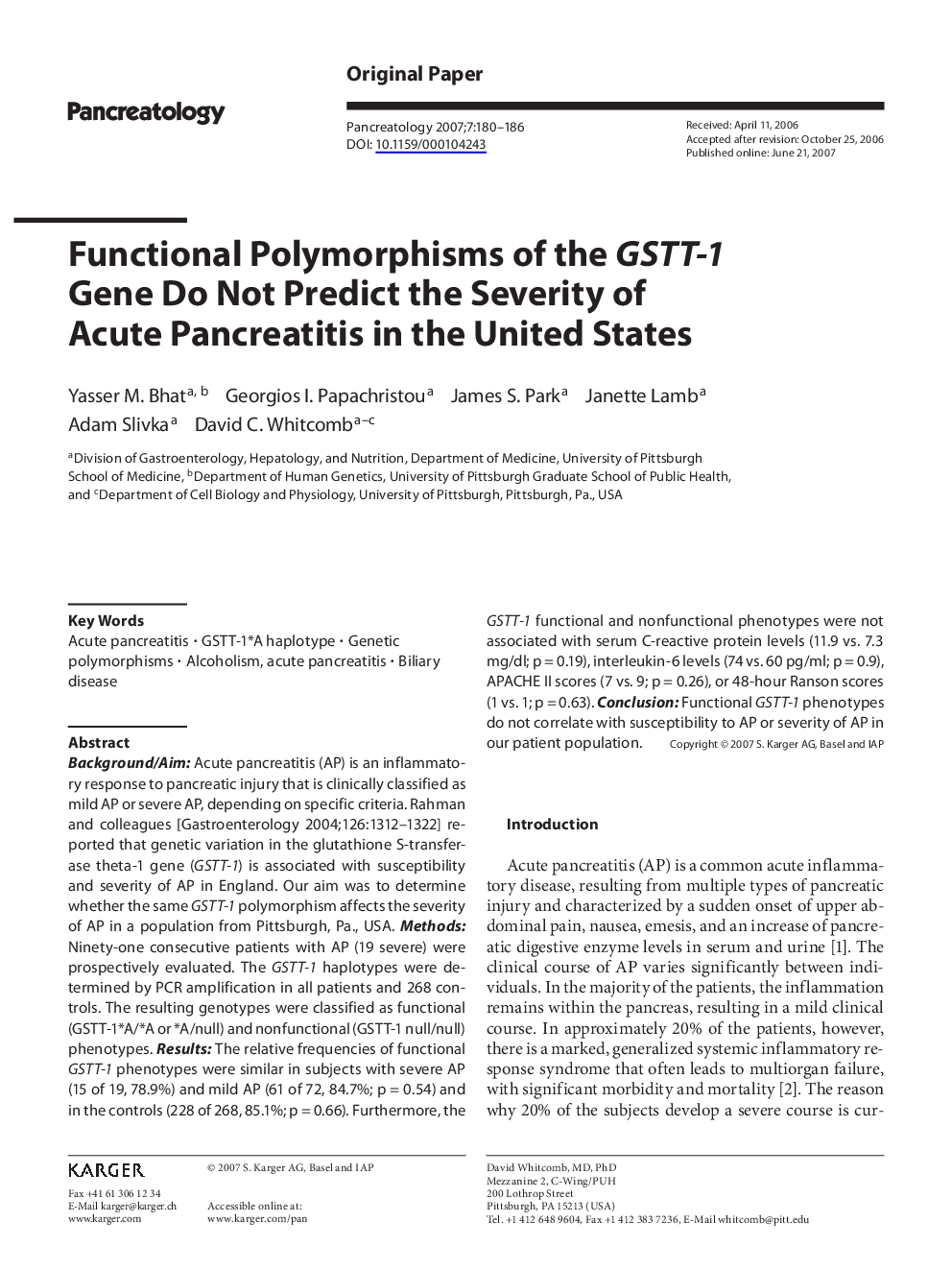| Article ID | Journal | Published Year | Pages | File Type |
|---|---|---|---|---|
| 3318510 | Pancreatology | 2007 | 7 Pages |
Abstract
Background/Aim: Acute pancreatitis (AP) is an inflammatory response to pancreatic injury that is clinically classified as mild AP or severe AP, depending on specific criteria. Rahman and colleagues [Gastroenterology 2004; 126:1312-1322] reported that genetic variation in the glutathione S-transferase theta-1 gene (G5TT-1) is associated with susceptibility and severity of AP in England. Our aim was to determine whether the same G5TT-1 polymorphism affects the severity of AP in a population from Pittsburgh, Pa., USA. Methods: Ninety-one consecutive patients with AP (19 severe) were prospectively evaluated. The GSTT-1 haplotypes were determined by PCR amplification in all patients and 268 controls. The resulting genotypes were classified as functional (GSTT-1A/AorA/null) and nonfunctional (GSTT-1 null/null) phenotypes. Results: The relative frequencies of functional GSTT-1 phenotypes were similar in subjects with severe AP (15 of 19, 78.9%) and mild AP (61 of 72, 84.7%; p = 0.54) and in the controls (228 of 268, 85.1%; p = 0.66). Furthermore, the GSTT-1 functional and nonfunctional phenotypes were not associated with serum C-reactive protein levels (11.9 vs. 7.3 mg/dl; p = 0.19), interleukin-6 levels (74 vs. 60 pg/ml; p = 0.9), APACHE II scores (7 vs. 9; p = 0.26), or 48-hour Ranson scores (1 vs. 1; p = 0.63). Conclusion: Functional GSTT-1 phenotypes do not correlate with susceptibility to AP or severity of AP in Our patient population.
Related Topics
Health Sciences
Medicine and Dentistry
Gastroenterology
Authors
Yasser M. Bhat, Georgios I. Papachristou, James S. Park, Janette Lamb, Adam Slivka, David C. Whitcomb,
